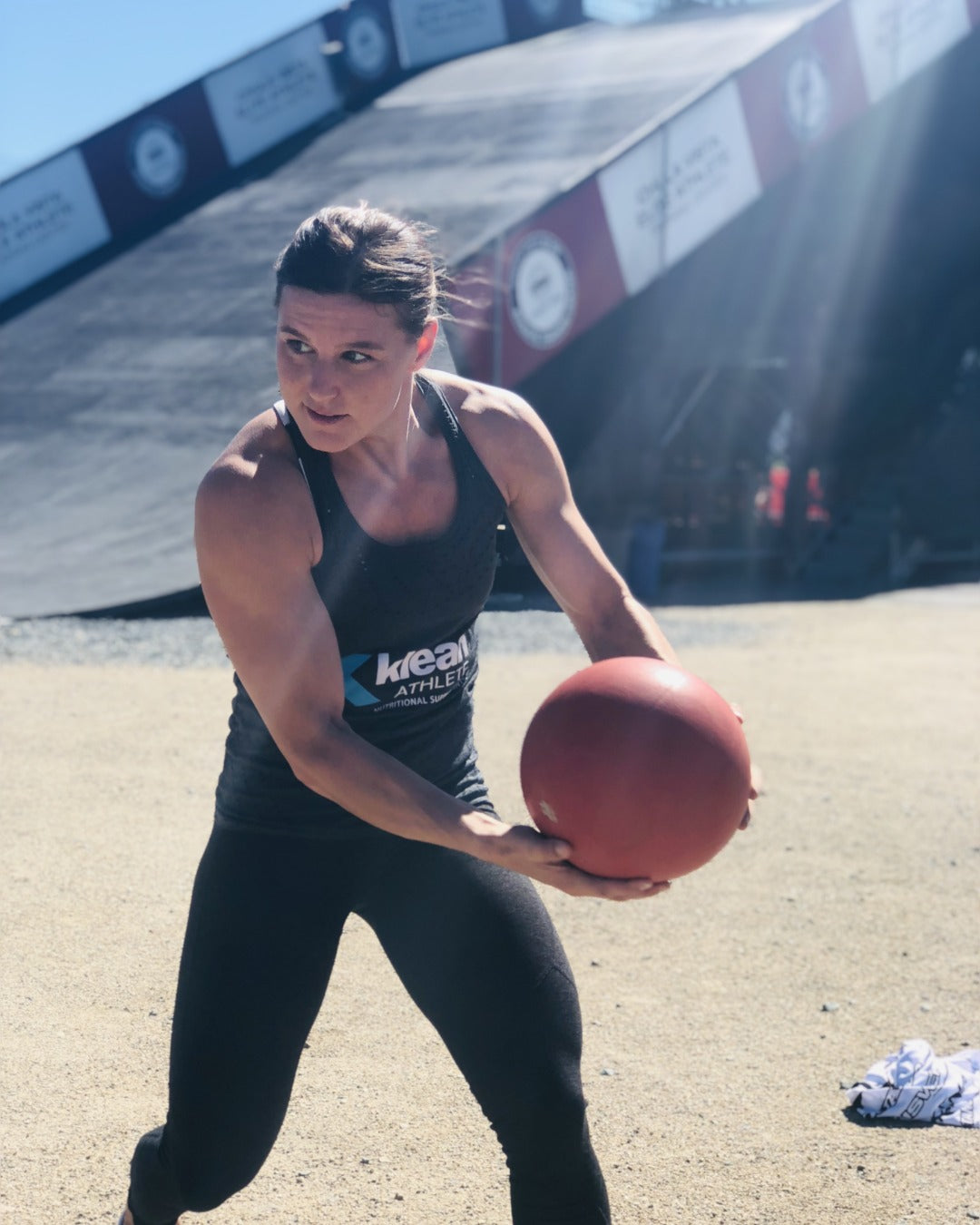
Key Supplements for Sports Nutrition: Creatine, Magnesium, and Collagen
Share
In the evolving landscape of sports nutrition, supplements like creatine, magnesium, and collagen have emerged as powerhouses, backed by robust science and surging in popularity. With the global sports nutrition market projected to hit $76 billion by 2031, these three stand out for their proven benefits in performance, recovery, and overall health. This article dives into why these supplements are trending, how they work, practical applications, and tips for integrating them into an active lifestyle.
Creatine: The Gold Standard for Performance
Why It’s Trending
Creatine is a staple in sports nutrition, with a 46% surge in consumer interest driven by its well-documented benefits for strength, power, and muscle recovery. Social media platforms like TikTok and X highlight its accessibility and effectiveness, not just for elite athletes but for gym-goers and active adults. Its low cost (often under $0.50 per serving) and extensive research—over 1,000 studies—make it a no-brainer for performance optimization.
How It Works
Creatine monohydrate, the most studied form, increases the body’s stores of phosphocreatine, which is used to produce ATP (adenosine triphosphate), the primary energy currency for high-intensity activities like sprinting or lifting. This boosts power output by 10-20% and enhances muscle recovery by reducing damage from intense exercise. It also supports muscle growth by increasing water retention in muscle cells, promoting hypertrophy.
Practical Applications
- Who benefits: Athletes in strength, sprint, or high-intensity sports (e.g., weightlifting, football, CrossFit); also supports cognitive function under stress.
- Dosage: 3-5g daily (0.03g/kg body weight) of creatine monohydrate, taken post-workout or with a carb-rich meal to enhance absorption.
- Forms: Powder is most cost-effective; capsules or gummies are convenient but pricier.
- Timing: Daily consistency matters more than timing; no need for loading phases (20g/day for 5-7 days) as 3-5g daily achieves saturation in 3-4 weeks.
Tips and Considerations
- Pair with carbohydrates (e.g., fruit juice) to spike insulin and improve muscle uptake.
- Stay hydrated, as creatine increases water retention in muscles.
- Look for third-party tested brands (e.g., NSF Certified) to ensure purity, as the FDA doesn’t regulate supplements.
- Non-responders (5-10% of people) may see less benefit due to high baseline creatine levels from red meat-heavy diets.
Busting Myths
Despite myths about kidney damage or bloating, studies show creatine is safe for healthy individuals when used as directed. Minor weight gain (1-2kg) from water retention is normal and not “fat.”
Magnesium: The Recovery and Sleep Enhancer
Why It’s Trending
Magnesium is gaining traction for its role in muscle function, recovery, and sleep quality—key for athletes pushing their limits. With 68% of Americans deficient in magnesium, supplementation is a hot topic in sports nutrition summits and online communities, where it’s praised for reducing cramps and fatigue.
How It Works
Magnesium is a cofactor in over 300 enzymatic reactions, including energy metabolism, muscle contraction, and protein synthesis. It regulates neuromuscular signals, preventing cramps and spasms, and supports ATP production for sustained energy. Its role in calming the nervous system also improves sleep, which is critical for recovery, as 7-9 hours of quality sleep boosts growth hormone release by 20-30%.
Practical Applications
- Who benefits: Endurance athletes (runners, cyclists), those with high sweat loss, or anyone under stress with poor sleep.
- Dosage: 300-400mg daily for adults, ideally in forms like magnesium citrate, glycinate, or malate for better absorption.
- Forms: Capsules or powders; avoid oxide forms due to low bioavailability (only 4% absorbed).
- Timing: Evening doses (1-2 hours before bed) enhance sleep quality; split doses if combining with daytime use.
Tips and Considerations
- Pair with vitamin B6 or zinc to enhance absorption and nervous system benefits.
- Food sources like spinach, almonds, or pumpkin seeds (200-400mg per 100g) can complement but often fall short for athletes’ needs.
- Watch for digestive side effects (e.g., diarrhea) with high doses or poorly absorbed forms.
- Check for interactions with medications like diuretics, which deplete magnesium.
Busting Myths
Magnesium doesn’t directly build muscle but supports recovery processes that enable harder training. Overdosing (>500mg/day) can cause loose stools, so stick to recommended doses.
Collagen: The Joint and Tissue Protector
Why It’s Trending
Collagen supplements are booming, particularly for joint health and recovery, with sales growing as women’s sports and aging athletes prioritize mobility. Social media highlights collagen’s role in “indulgently healthy” formats like protein gels, appealing to those balancing performance with lifestyle. Research supports its efficacy for connective tissue repair, making it a go-to for injury prevention.
How It Works
Collagen, a protein abundant in tendons, ligaments, and skin, provides structural support. Hydrolyzed collagen peptides (broken-down forms) are absorbed efficiently, stimulating the body to produce more collagen and hyaluronic acid, which lubricate joints and reduce stiffness. Studies show 5-15g daily can reduce joint pain by 20-50% in athletes and improve recovery from tendon injuries.
Practical Applications
- Who benefits: Athletes in high-impact sports (e.g., running, basketball), those with joint pain, or older adults aiming to preserve mobility.
- Dosage: 5-15g daily of hydrolyzed collagen (types I and III for joints/skin; type II for cartilage).
- Forms: Powders mix well in coffee or shakes; gummies or capsules are portable but lower-dosed.
- Timing: Take 30-60 minutes before exercise to target connective tissues or anytime for general benefits.
Tips and Considerations
- Pair with vitamin C (50-100mg, e.g., from citrus) to boost collagen synthesis.
- Look for sustainably sourced collagen (bovine or marine) from reputable brands.
- Plant-based eaters can explore collagen “boosters” (e.g., silica, vitamin C), though direct collagen is animal-derived.
- Benefits take 8-12 weeks of consistent use to become noticeable.
Busting Myths
Collagen isn’t a complete protein for muscle building (low in essential amino acids), but it complements whey or plant-based proteins. It’s not a quick fix—consistency is key for measurable joint or skin improvements.
Integrating These Supplements into Your Routine
Sample Daily Plan
- Morning: Mix 5g creatine with a post-workout smoothie (banana, whey protein, berries).
- Midday: Snack on magnesium-rich foods (almonds, dark chocolate) or take 150mg magnesium citrate with lunch.
- Pre-workout: Stir 10g collagen peptides into coffee or water 30 minutes before training.
- Evening: Take 150-200mg magnesium glycinate 1-2 hours before bed to aid sleep.
Stacking for Synergy
- Creatine + Collagen: Enhances muscle and joint recovery for high-intensity training.
- Magnesium + Collagen: Supports muscle relaxation and connective tissue repair, ideal for endurance athletes.
- All three: A balanced stack for overall performance, recovery, and injury prevention—pair with a diet rich in whole foods (lean meats, vegetables, complex carbs).
Key Considerations
- Quality matters: Choose third-party tested supplements to avoid contaminants or mislabeled doses.
- Diet first: Supplements enhance, not replace, a nutrient-dense diet (e.g., 1.6-2.2g protein/kg body weight, 45kcal/kg fat-free mass daily).
- Consult professionals: Work with a sports dietitian to tailor doses, especially if on medications or managing conditions like kidney issues.
Why These Supplements Matter in 2025
The rise of creatine, magnesium, and collagen reflects a broader trend in sports nutrition: science-backed solutions for performance and longevity. With 91% of app users relying on data-driven nutrition plans and social media amplifying practical tips, these supplements are accessible tools for everyone from weekend warriors to elite competitors. Their benefits—strength, recovery, joint health—align with the shift toward “everyday athleticism,” where active lifestyles demand sustainable, effective support.
By incorporating creatine for power, magnesium for recovery, and collagen for joint health, you can optimize your training while protecting your body for the long haul. Start small, stay consistent, and pair with a balanced diet and sleep for the best results. For personalized guidance, consult a registered dietitian or check trusted resources like the International Society of Sports Nutrition.
